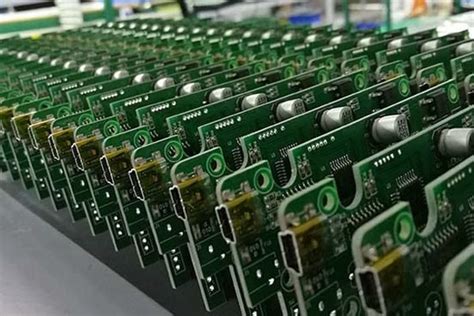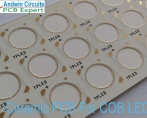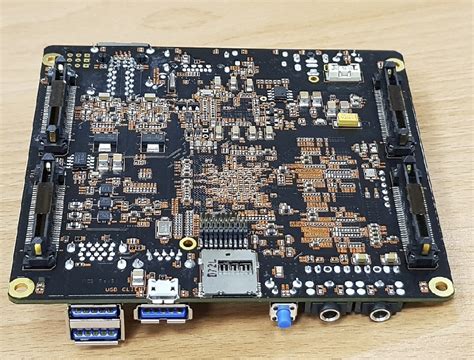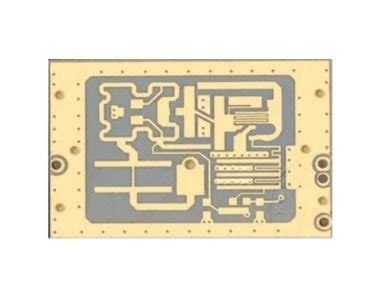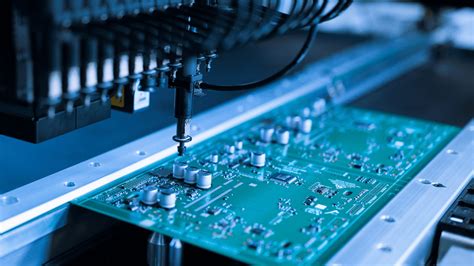Low-Cost PCB Assembly Solutions for Prototype Builds
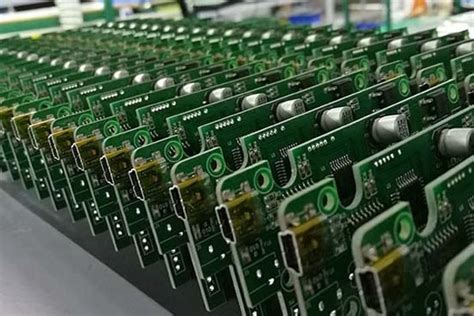
Key Takeaways
When exploring PCB assembly options for prototype builds, balancing cost and quality requires understanding key value drivers Modern PCBA providers leverage design optimization and automated assembly processes to reduce expenses without compromising precision Three critical factors influence affordability:
1 Component sourcing strategies: Partnering with suppliers offering volume discounts or alternative parts
2 Assembly efficiency: Utilizing surface-mount technology (SMT) for high-density layouts
3 Testing protocols: Implementing targeted inspection methods rather than full-coverage testing
| Feature | Cost Impact | Prototype Benefit |
|---|---|---|
| Panelized Assembly | 15-30% reduction | Efficient material usage |
| Partial Turnkey Service | 20% savings | Client-supplied components |
| Batch Optimization | 10-25% lower costs | Shared setup expenses |
While lead times often correlate with pricing, several low-cost PCB assembly services maintain 5-7 day turnaround through strategic inventory management Crucially, design-for-manufacturing (DFM) analysis prevents 63% of prototype errors according to IPC data, reducing costly revisions For PCBA projects, prioritize providers offering transparent breakdowns of NRE (non-recurring engineering) costs versus per-unit pricing
The most effective budget solutions combine modular design approaches with scalable assembly processes, allowing seamless transition from prototype to production Always verify certifications—ISO 9001 and IPC-A-610 compliance remain baseline indicators for quality-conscious PCB assembly at competitive rates
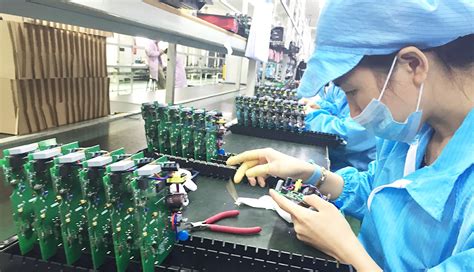
Affordable PCB Prototype Assembly
For engineers and startups navigating tight budgets, PCB assembly services tailored for prototyping offer a strategic balance between cost efficiency and functional reliability Modern cost-effective solutions leverage optimized component sourcing, automated assembly processes, and scaled pricing models to deliver functional prototypes without compromising on quality By partnering with PCBA providers specializing in low-volume production, developers gain access to advanced surface-mount technology (SMT) and through-hole assembly techniques at competitive rates
Key to affordability is the integration of just-in-time manufacturing principles, which minimize material waste and reduce overhead costs Many suppliers now offer shared panelization options, allowing multiple prototype designs to be assembled simultaneously on a single board, dramatically lowering per-unit expenses Additionally, streamlined workflows—from design-for-manufacturability (DFM) checks to automated testing—ensure rapid iteration cycles while maintaining precision
For projects requiring quick-turn prototypes, select PCB assembly services provide expedited 24–72-hour turnaround options without premium pricing, enabled by modular production lines and pre-vetted component inventories This approach ensures that even budget-conscious teams can validate designs efficiently, accelerating development timelines while adhering to strict quality standards
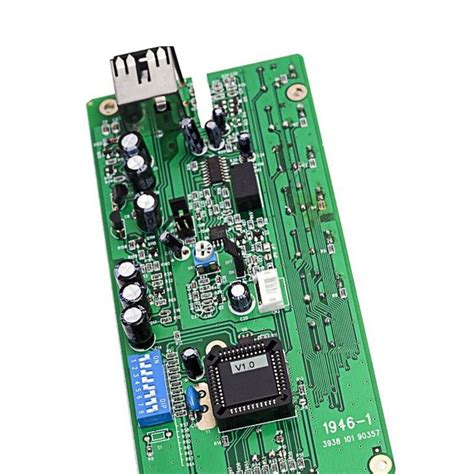
Budget PCB Prototyping Solutions
For engineers and startups prioritizing affordability without sacrificing functionality, PCB assembly services tailored for prototyping offer a strategic advantage These solutions focus on minimizing material waste, optimizing component sourcing, and leveraging scalable PCBA workflows to reduce per-unit costs By employing panelization techniques and standardized parts, providers can deliver functional prototypes at a fraction of traditional pricing—ideal for validating designs before mass production
"Always verify if your supplier offers bulk discounts for prototype batches Many low-cost PCB assembly services provide tiered pricing, allowing you to scale economically as your project progresses."
Advanced design for manufacturability (DFM) checks further ensure that budget-friendly prototypes maintain reliability Modern PCB assembly platforms integrate automated optical inspection (AOI) and selective soldering, addressing common pain points like solder bridging or misaligned components For projects requiring rapid iteration, partnering with a PCBA specialist offering 24-48-hour turnaround ensures design flaws are identified early, preventing costly revisions downstream Balancing cost and quality hinges on transparent communication about tolerances, material grades, and testing protocols—key factors in achieving first-pass success even with constrained budgets
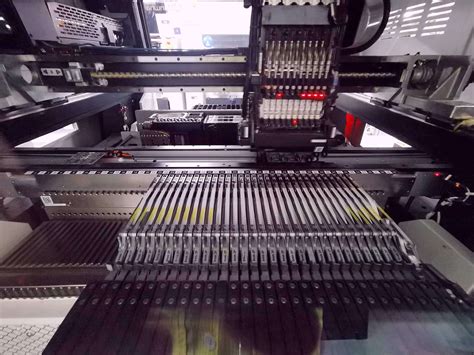
Quick Low-Cost PCB Services
When developing prototypes, balancing speed and affordability is critical Modern PCB assembly providers leverage streamlined workflows and automated processes to deliver rapid turnaround without inflating costs By optimizing material procurement and minimizing manual interventions, these services reduce lead times to as little as 24–48 hours for basic PCBA orders This agility is particularly valuable for startups and engineers iterating designs under tight deadlines
Key to maintaining low costs is the strategic use of standardized components and bulk purchasing for common parts like resistors or connectors Advanced design-for-manufacturing (DFM) checks further eliminate errors early, avoiding costly revisions For projects requiring expedited service, many providers offer tiered pricing—enabling clients to prioritize either speed or budget
Additionally, partnerships with global suppliers ensure access to competitively priced materials, while localized assembly hubs reduce shipping delays Whether testing a new IoT device or refining a sensor module, low-cost PCB assembly solutions provide the flexibility to scale from prototype to high-volume production seamlessly By integrating these efficiencies, teams can accelerate development cycles while preserving resources for critical R&D investments
Precision PCB Assembly on Budget
Achieving high-precision PCB assembly while adhering to budget constraints requires a strategic balance of process optimization and material selection Modern PCBA providers leverage advanced automated pick-and-place systems and surface-mount technology (SMT) to minimize human error, ensuring consistent accuracy even in low-volume prototype runs By standardizing component libraries and partnering with certified suppliers, these services reduce costs associated with obsolete or overpriced parts without compromising on traceability
For cost-sensitive projects, design-for-manufacturability (DFM) reviews play a pivotal role in identifying potential assembly challenges early, preventing costly rework Many affordable PCB assembly solutions now incorporate automated optical inspection (AOI) and X-ray testing as standard quality checks, maintaining reliability thresholds while keeping per-unit expenses competitive Transitioning seamlessly from design to production, these streamlined workflows enable engineers to validate complex circuits through functional prototypes, bridging the gap between concept verification and mass manufacturing readiness
The integration of just-in-time inventory management further enhances affordability, particularly for projects requiring specialized ICs or connectors By aligning PCBA processes with lean manufacturing principles, service providers deliver sub-01mm placement accuracy across multilayer boards—a critical advantage for RF designs or high-density interconnects—at rates accessible to startups and R&D teams alike
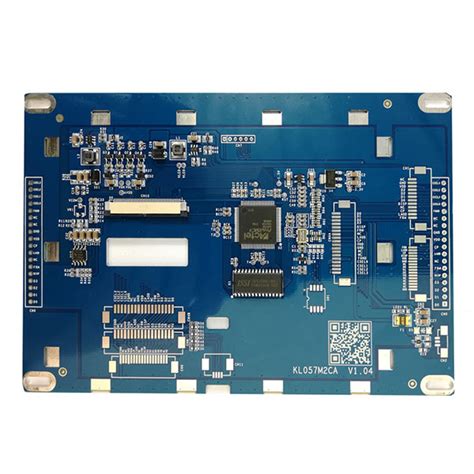
Cost-Effective Prototype PCBs
Achieving affordability in prototype PCB assembly requires strategic balancing of material selection, manufacturing processes, and design optimization Low-volume production often faces higher per-unit costs, but partnering with specialized PCBA providers can mitigate this through scaled pricing models and shared resource pools By leveraging surface-mount technology (SMT) and standardized component libraries, engineers reduce both assembly time and material waste—key drivers of cost efficiency
A critical factor is the integration of design-for-manufacturability (DFM) principles early in the prototyping phase Simplifying board layouts, minimizing layer counts, and opting for readily available components ensure smoother transitions from design to production Many PCB assembly services now offer tiered pricing for prototypes, allowing developers to prioritize critical features while deferring non-essential functionalities to later stages
For startups and R&D teams, hybrid approaches—such as combining automated PCBA with selective hand-soldering for unique components—deliver cost flexibility without compromising precision Additionally, suppliers offering consolidated logistics (e.g., combined material sourcing and testing) further compress expenses Advanced quoting tools enable real-time cost simulations, empowering designers to make informed trade-offs between lead times, complexity, and budget constraints This holistic approach ensures prototype viability while maintaining a clear path to scalable manufacturing
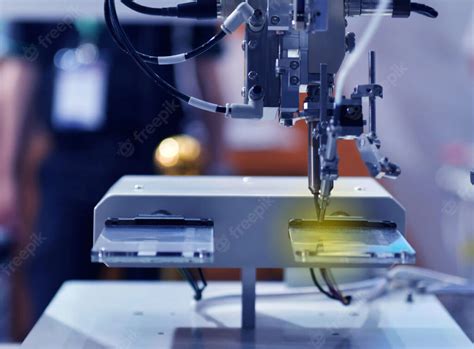
Quality PCB Assembly for Less
Achieving high-quality PCB assembly while maintaining cost efficiency requires striking the right balance between precision and affordability Modern PCBA providers leverage advanced manufacturing techniques, such as automated pick-and-place systems and reflow soldering, to minimize human error and ensure consistent output Component sourcing plays a critical role—reputable suppliers partner with certified vendors to secure cost-effective materials without compromising on reliability
For prototype builds, streamlined workflows and modular production setups help reduce overhead By optimizing batch sizes and prioritizing design-for-manufacturability (DFM) principles, engineers can avoid costly revisions Rigorous testing protocols, including automated optical inspection (AOI) and functional testing, further safeguard quality at every stage
Budget-conscious teams should also consider suppliers offering bundled services, such as PCB fabrication and assembly, to consolidate expenses Transparent pricing models with no hidden fees ensure alignment with project budgets This approach not only delivers rapid turnaround times but also scales seamlessly from prototyping to low-volume production
Ultimately, the goal is to deliver durable, precision-assembled boards that meet performance benchmarks while adhering to strict financial constraints—a cornerstone of successful electronics development
Fast Affordable PCB Prototyping
Accelerating product development cycles demands PCB assembly solutions that balance speed and affordability without compromising reliability For engineers and startups working on prototype builds, accessing low-cost PCBA services with rapid turnaround times (often 24-72 hours) can significantly shorten iteration phases Leading providers achieve this through strategic partnerships with global component suppliers and optimized assembly workflows, enabling cost reductions of 20-40% compared to traditional manufacturing models
Advanced automated soldering systems and AI-driven quality checks ensure precision in PCB assembly, even for complex multilayer designs Many services now offer design for manufacturing (DFM) analysis at no extra cost, identifying potential issues like trace spacing errors before prototyping begins—a critical step to avoid costly revisions For time-sensitive projects, express shipping options and just-in-time inventory management further compress delivery timelines while maintaining budget constraints
However, true affordability hinges on transparent pricing models Reputable PCBA providers avoid hidden fees by offering real-time quotes based on board complexity, component sourcing requirements, and testing protocols This approach allows developers to prioritize critical features during the prototyping phase before scaling to high-volume production, creating a seamless bridge between concept validation and market-ready electronics
Low-Cost PCB Electronics Solutions
Achieving ## Low-Cost PCB Electronics Solutions requires a strategic balance between component selection, manufacturing efficiency, and design optimization Modern PCB assembly providers leverage economies of scale and advanced automation to reduce overheads, passing savings to clients without compromising quality For prototype builds, opting for PCBA services that integrate standardized parts and modular designs can cut material costs by up to 30%, while still ensuring compatibility with future iterations
A critical factor is selecting suppliers with transparent pricing models for low-volume orders, as hidden fees often inflate expenses Many manufacturers now offer tiered pricing for PCB assembly, where costs decrease as order quantities rise—ideal for scaling prototypes to production Additionally, design-for-manufacturing (DFM) practices, such as minimizing layer counts and avoiding oversized boards, further streamline expenses
To maintain affordability, some providers utilize surplus components or alternative sourcing networks for high-demand parts, mitigating supply chain delays However, engineers must verify that cost-cutting measures don’t sacrifice reliability—rigorous testing protocols remain essential By aligning PCBA workflows with lean manufacturing principles, businesses can secure budget-friendly solutions that accelerate development cycles while preserving precision
Conclusion
In the evolving landscape of electronics development, balancing cost and quality remains a critical challenge for engineers and startups PCB assembly services designed for prototype builds have emerged as a strategic solution, enabling innovators to test designs without overspending By prioritizing component optimization and streamlined workflows, these services minimize material waste and labor costs while maintaining precision The integration of PCBA expertise ensures that even budget-conscious projects benefit from reliable soldering, thorough testing, and adherence to industry standards
When selecting a provider, consider how their supply chain partnerships and automated processes contribute to affordability Many low-cost services achieve efficiency through bulk purchasing of common components or by offering flexible order volumes This approach not only reduces per-unit expenses but also accelerates turnaround times—a key advantage for iterative prototyping
Ultimately, the right PCB assembly partner empowers teams to allocate resources toward design refinement rather than production overhead By leveraging scalable PCBA solutions, developers can transition seamlessly from prototype validation to pre-production stages, ensuring that cost-effectiveness never compromises innovation
Frequently Asked Questions
What factors influence pricing in prototype-focused PCB assembly services?
Costs primarily depend on component sourcing, PCB assembly complexity, and order volume Many providers offer tiered pricing for small batches, optimizing expenses during development phases without compromising PCBA quality
How do budget-friendly services maintain quality standards?
Reputable suppliers implement automated optical inspection and adhere to IPC-A-610 guidelines While focusing on low-cost PCB assembly, they prioritize precision soldering and rigorous testing protocols for functional prototypes
What turnaround times are typical for economical prototype orders?
Standard services deliver PCBA within 5-7 business days, with expedited options available Design complexity and component availability remain critical factors affecting production schedules across all PCB assembly tiers
Can I supply custom components for cost-reduced assemblies?
Most prototype specialists accommodate client-provided parts, potentially lowering PCB assembly costs Verify supplier policies regarding component verification and minimum quantity requirements before material submission
Are there hidden charges in affordable PCB assembly quotes?
Transparent providers itemize costs including stencil fees, PCBA testing, and shipping Request detailed breakdowns confirming budget allocations for design verification and post-assembly inspections
Explore Our Streamlined Prototyping Solutions
For tailored PCB assembly strategies balancing cost-efficiency and reliability, please click here to access specialized prototyping packages with real-time order tracking and dedicated engineering support

